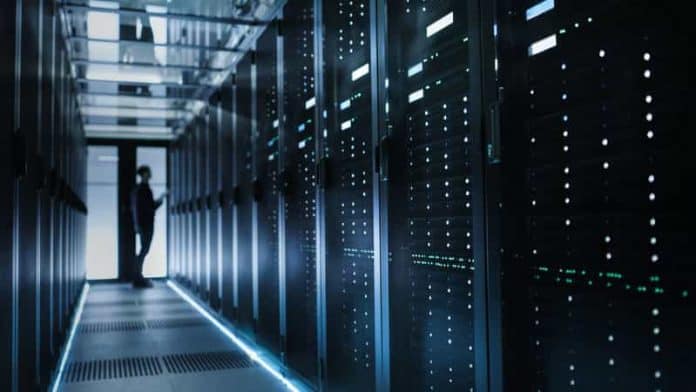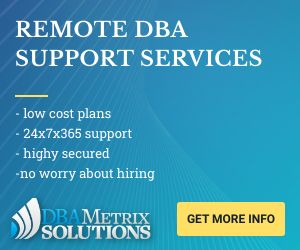Nowadays the use of databases is something fundamental in any application, and logically its use has spread in companies, both offline and online. They are used by web and desktop applications to quickly write, modify, and retrieve information.
When starting to work with databases, we will face a new concept, which is known as a database server.
In today’s article we will explore the concept, its functions, features, and what are the best database servers to use in your apps.
What is a Database Server?
A database server, also known as a database server or RDBMS (Relational DataBase Management Systems) in case of relational databases, is a type of server software that allows the organization of information through the use of tables, indexes and records.
At the hardware level, a database server is a computer equipment specialized in serving queries to remote or local clients that request information or make modifications to the records and tables that exist within the system databases (in many cases from a web or application server).
The databases that exist within, serve to manage and administer huge amounts of information, as in the case of companies, institutions, universities or banks, which store user / client data such as addresses, telephones, emails, income, expenses, grades, etc.
The origin of database servers dates back almost 60 years, when they emerged in the 1960s to begin providing solutions for the management and administration of data volumes to large companies.
Later, this data began to be shared through what is called a database client.
Functions of a Database Server:
If we go to the fundamental function of a database server, we will find that it is the service that provides information to other web applications or computers / hosts, as specified in the client server model.
By using a database client, you can access the information that is stored in the different databases. Once the client has accessed by means of a username, password and hostname, they are allowed to perform different tasks, depending on the level of privileges they have.
Some users have administrator privileges and can fully manage the databases to which they connect, while other users have partial privileges to only read data (do read queries, also called SELECT).
Modern database engines allow query concurrency, which means that one user can write to a certain table, while another does data reading, or also writes at the same time, all from different geographical locations even.
After the database client finishes the query, the connection to the server ends.
The availability of the database is directly dependent on the correct operation of the database hardware and software.
For example, if there is a failure in the RAM or CPU of the hardware that supports the server, they will surely not be able to access. Or if there is a failure preventing the SQL server from starting correctly, the service will also be affected.
Popular uses of database servers:
There are many popular uses for database servers since their invention, for example:
- People record management – The use of medical record software, as well as client profile tabs in clinics, dental centers, and more, is a very common sight.
- Document management: used to organize text documents of various kinds, something widely used in different companies.
- Accounting and tax administration: the use of databases in accounting studies improves the handling of invoices, tax payments, expenses, income and expenses.
- Website indexing: the most popular case in the world is Google with its huge database to index, manage and modify the aspects of websites in their results.
- Serve dynamic content: With the rise of the PHP server and web programming, databases began to be used to serve data from forums, CMS, user administrations, content managers (such as WordPress) and more.
Hardware and network architecture for your database server:
Follow these tips to ensure that your performance is optimal on your database servers:
Use SSD disks, they are the best in terms of performance in writing and reading
Follow disk usage closely, because although SSDs are good, they are usually smaller than SATA III for example
If you can add a RAID 10, even better, it will give you greater speed and protection against hardware failures
Use a modern CPU, such as Intel E5, Core i9 or Xeon Gold servers
Better that you have more RAM than you lack, today no database should be used with less than 8GB, from there on
If you use balancing or replication of data in a cluster, remember to use 1Gbps interfaces per private network, they offer security and speed
What database server should I choose?
As we have seen previously, the use of a database server is essential today, whether our application is desktop, or if it runs in the cloud or on a web server within a dedicated hosting.
There are many variables to take into account when we are going to choose a database engine or server, among which we can highlight:
- Database size
- Number of records per table
- Percentage of read and write operations
- Server operating system
- Simultaneity of users
- High availability and balancing
In general, engines like MySQL or MariaDB are standardized solutions for 90% of small or medium databases.
MySQL offers good performance, is flexible, and easy to implement. Using good practices at the performance level in your queries and ways of storing information, you can have great performance.
While NoSQL-based solutions like MongoDB when there is a lot of data writing, immediate availability is required and when disk growth is really fast.
When you want to make a strong Oracle DBA career then you should be aware of database services and other database technology. Without having knowledge of Oracle internals, Oracle performance tuning, and skill of Oracle database troubleshooting you can’t be an Oracle DBA expert.
This expert DBA Team club blog always provides you latest technology news and database news to keep yourself up to date. You should need to be aware of Cloud database technology like DBaaS. All Oracle DBA tips are available in a single unique resource at our orageek. Meanwhile, we are also providing some sql tutorials for Oracle DBA. This is the part of Dbametrix Group and you would enjoy more advanced topics from our partner resource.






